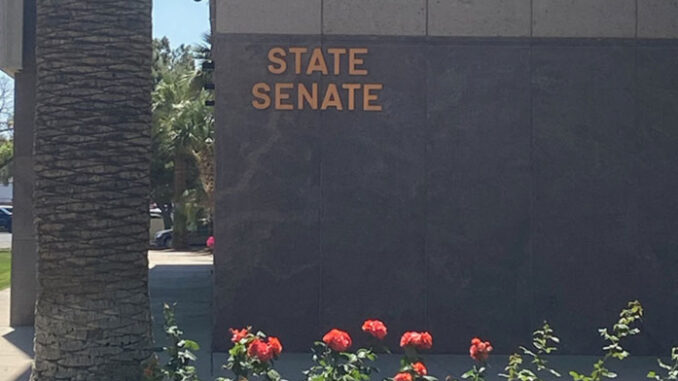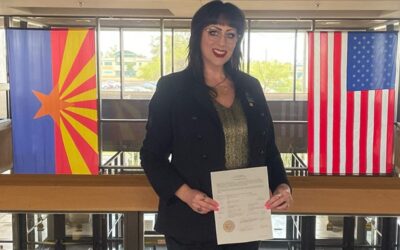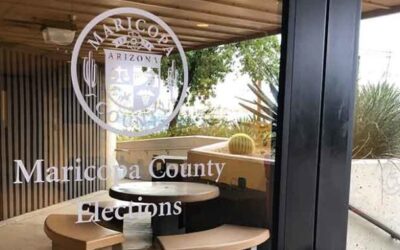By Corinne Murdock |
The Arizona Senate Transportation Committee devoted their entire agenda on Monday to discussing four bills advancing electric vehicle initiatives. The four bills were introduced by Minority Whip Victoria Steele (D-Tucson), with two of the bills cosponsored by State Representative Jennifer Jermaine (D-Chandler).
SB1150 would prohibit municipalities or boards of supervisors from awarding residential, single-family building permits unless the structure would have an electric vehicle charging station. Manufactured homes or residences under 1,000 square feet, without off-street parking, or with electric services that would exceed 200 ampere with an electric vehicle charging station would be exempt. Proposed changes to the bill would have the state reimburse builders up to $1,000 for the cost of electric vehicle charging outlet installation. SB1150 passed 6-3; Majority Leader Rick Gray (R-Sun City) along with State Senators Paul Boyer (R-Glendale) and Sine Kerr (R-Buckeye) voted against it while Minority Leader Rebecca Rios (D-Phoenix) and State Senators Steele, Rosanna Gabaldon (D-Tucson), Lisa Otondo (D-Yuma), Tyler Pace (R-Mesa), and T.J. Shope (R-Phoenix) voted for it. This was the only Green New Deal-esque bill that Boyer voted against.
SB1151 would direct the Arizona Department of Housing (ADOH) to conduct a two-year program funded with $500,000 from the state’s general fund. State agencies could request the department to cover any electric vehicle charging station installation costs. Steele’s bill would also make Arizona greener in more than one sense of the word. If passed, private companies could turn a profit from this endeavor — the bill would grant private entities to establish fee-based electric vehicle charging stations at the legislature, any state agency, and any Arizona Board of Regents (ABOR) university property. SB1151 passed 7-2, with Gray and Kerr voting against it, and Boyer, Gabaldon, Otondo, Rios, Steele, Shope, and Pace voting for it.
SB1152 would redefine “zero emission vehicle” (ZEV) to mean that which doesn’t emit exhaust, gas, or other pollutants, and require the Arizona Department of Transportation (ADOT) to establish interstate and intrastate zero emission vehicle corridors, and install zero emission vehicle infrastructure. ADOT would be required to submit a draft ZEV plan to the governor and the presidents of the state senate and house six months after the bill’s passage. Gray and Kerr voted against it, and Boyer, Gabaldon, Otondo, Rios, Steele, Shope, and Pace voted for it.
SB1154 would establish a “Transportation Electrification Study Committee” to review current state laws inhibiting electric transportation expansion; issue propaganda; and coordinate with local governments, electric utilities, environmental groups, the transportation industry, and the community to determine the best route for transitioning from regular to electric vehicles. If passed, the committee would submit its report by July 1, 2023 before its dissolution in September 2024. SB1154 passed 7-2, with Gray and Kerr voting against it, and Boyer, Gabaldon, Otondo, Rios, Steele, Shope, and Pace voting for it.
The bills resemble a similar policy enacted by the Tucson City Council last summer. Tucson now requires electric vehicle charging outlets on all new constructions of one- and two-family dwellings.
Corinne Murdock is a reporter for AZ Free News. Follow her latest on Twitter, or email tips to corinne@azfreenews.com.








